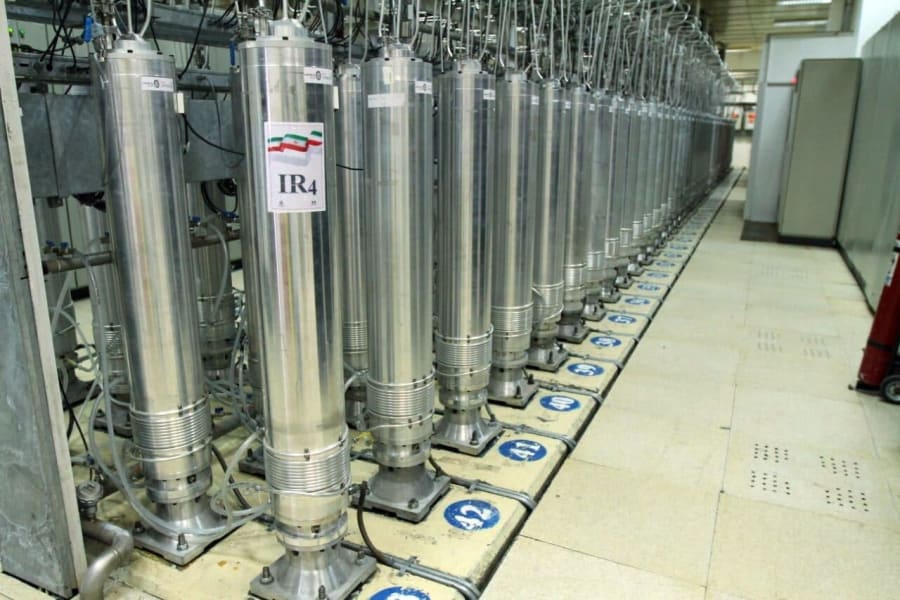IAEA says Iran has tripled production to 60% enriched uranium, has enough for 3 bombs
Iran denies any recent change in enrichment levels

The International Atomic Energy Agency (IAEA) issued a report on Tuesday revealing that Iran had increased its uranium enrichment following a brief reported slowdown earlier this year.
The slowdown was believed to be related to secret negotiations between Iran and the United States earlier this year, which led to the release of several US citizens held in Iran, according to the statement.
The IAEA also said that Iran has enough uranium enriched to 60% that it could make three nuclear bombs, after further enrichment.
Uranium only has to be enriched to near 4% purity for use in nuclear energy, while nuclear weapons-grade uranium requires enrichment to around 90%. Critical mass can be achieved with lower purities but would require a larger bomb.
Nuclear experts estimate that Iran would require only seven days to further purify the uranium to weapons-grade enrichment (90%).
Iran had been producing enriched uranium at a rate of around 3 kilograms per month, during the slowdown, but according to the IAEA has resumed production of larger amounts, around 9 kilograms per month.
“This represents an increase compared to the approximately three kilograms produced per month since June, and a return to the monthly pace of nine kilos during the first half of 2023,” reported the IAEA, which is run by the United Nations.
The Iranian regime is also producing stockpiles of uranium enriched to other purity levels – less than 60% – which could be further enriched if desired. The production of stockpiles at greater than 5% enrichment is unnecessary for a civilian energy program.
While the presence of such highly-enriched uranium (HEU) indicates a weapons program, the IAEA believes Iran would still need additional time to produce a working nuclear device after achieving the necessary purity.
The U.S. Biden administration expressed concern following the IAEA report.
“Iran’s nuclear escalation is all the more concerning at a time when Iran-backed proxies continue their dangerous and destabilizing activities in the region, including the recent deadly drone attack and other attempted attacks in Iraq and Syria and the Houthi attacks against commercial shipping vessels in the Red Sea,” U.S. National Security Council Spokesman John Kirby said on Tuesday evening.
Senior Director of Nonproliferation and Biodefense Program Anthony Ruggiero, who works for the Foundation for Defense of Democracies, blamed the failed policy of the U.S. administration for allowing Iran to get so close to achieving a nuclear weapon.
“President Biden’s failed Iran policy has emboldened Tehran to expand its nuclear program and attack U.S. personnel in Iraq and Syria. Biden must restore deterrence with overwhelming military strikes and financial sanctions on the Islamic Republic and its proxies,” Ruggerio said.
Mohammad Eslami, head of the Atomic Energy Organization of Iran (AEOI), confirmed the 60% enrichment rate but claimed there was no change to the pace.
"We are enriching to the same 60% purity; we have neither changed our work nor expanded our capacity," he said in a statement.
Eslami accused the IAEA of trying “to distract public attention” from the war in Gaza.

The All Israel News Staff is a team of journalists in Israel.













